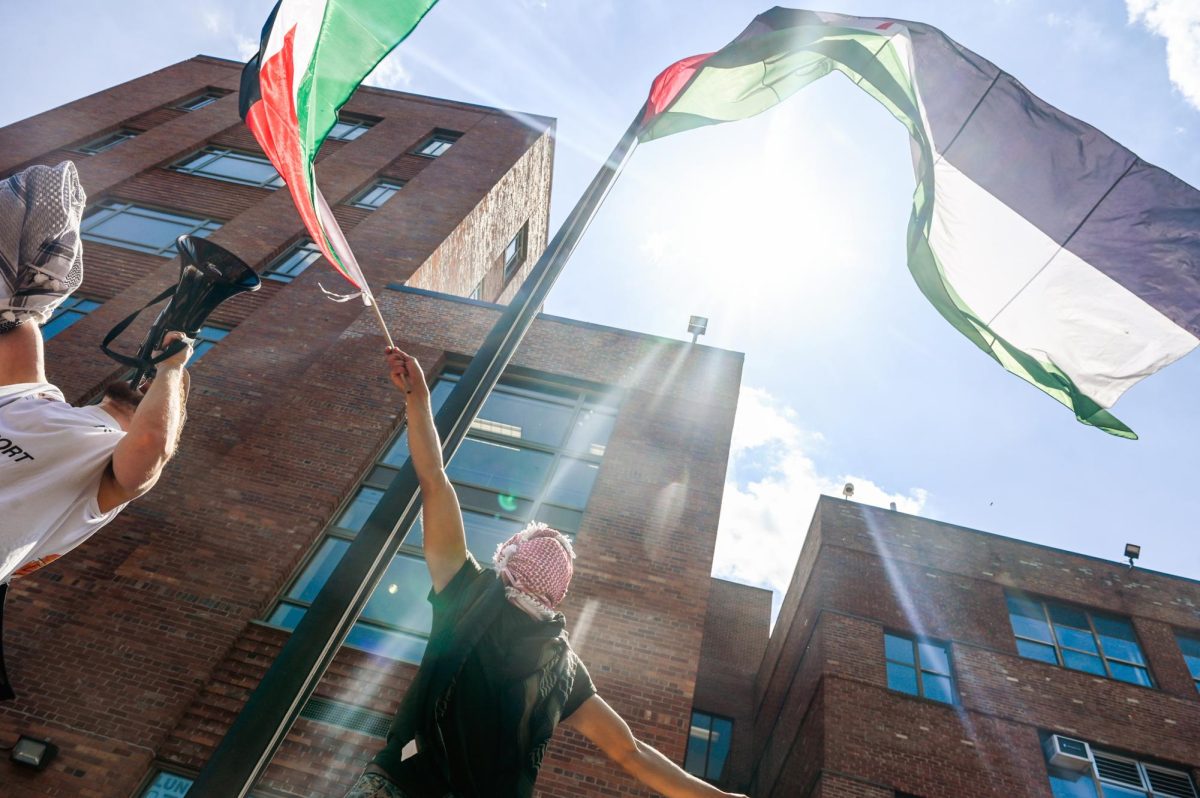While many GW students opt for a summer internship close to campus, four brothers from the Pi Kappa Phi fraternity found themselves on the opposite side of the country this summer, ready to embark on a 67-day bike ride across the United States.
The project is called Journey of Hope, the largest event organized by Push America, which is a national philanthropic organization founded by a Pi Kapp brother in 1977 and targeted toward aiding individuals with mental and physical disabilities.
“We actually own and operate our own philanthropy,” said Journey of Hope participant Adam Wallick, a 2006 alumnus of the Elliott School of International Affairs and Pi Kapp brother. The GW chapter alone raised $34,000 through fundraisers on campus and sponsorships during the trip. Nationally, Pi Kapp raised a total of $598,000 for Push America.
Adapting the mantra, “Do it for those who can’t,” Wallick, junior Ross Greenky, senior Matt Casale and junior Rich Alexander represented the GW Pi Kapp chapter. They were joined by 91 other brothers from schools across the country.
Journey of Hope, now in its 23rd year, divided participants into three different routes, starting in either California or Seattle. Participants biked an average of 75 miles a day and stopped at different cities to make “friendship visits” at advocacy centers for the disabled.
“Not many people can say they got to see the country but also help people,” said Greenky. “It was definitely a once-in-a-lifetime experience.”
Alexander said one of the most memorable parts of the trip occurred in Albequerque.
“The most eye-opening was probably in Albuquerque,” Alexander said. “We were introduced to a girl in a wheelchair who had cerebral palsy and had to communicate through a computer. But she still seemed so happy.”
Wallick had a similar experience with a man in Pittsburgh.
“You meet someone who, at first glance, you may not think you can learn a lot from. One of the biggest barriers these people face is society’s misunderstanding,” he said.
The cyclists also took part in different sports and recreational activities with disabled patients.
“In Milwaukee, we played wheelchair sports like basketball and ice hockey,” Wallick said. “They kicked our asses.”
In many small towns across the country, the mere presence of 35 fraternity brothers caused a stir, Wallick said.
“We were like celebrities in the town,” Wallick said of Grand Island, Neb. “We were in the paper, on TV – basically treated like kings.”
While all the brothers anticipated long hours spent biking in the summer heat, their overall gratification in participating negated any aversions toward the trip.
“Sure, there were a couple of tough days,” Wallick said, citing days where the team biked 90 miles with a strong head wind, through hills, with a shredded tire and in torrential rain. “But so many places we went to, we were the highlight of their summer. You get to places and you meet people that make it all worth it.”
Journey of Hope’s final stop was in Washington, D.C., on Friday, Aug. 15. They made appearances in Kogan Plaza and at the U.S. Capitol Building.
“When we made it back to the Capitol, I just started crying,” Casale said. “I missed my friends and my family and my girlfriend so much, but I had also been thinking of this for a year straight, and it was over.”
For Wallick, who quit his job five days before the trip, finishing Journey of Hope offered fresh perspective on his post-graduate life.
“I’m grateful I made the time to do it,” he said. “It gave me a lot of optimism. I’ll get a job eventually, but now I can take this experience with me.”






